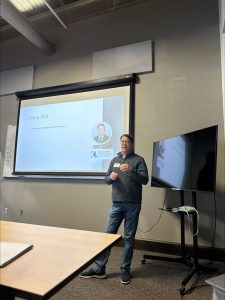
Key Business and Legal Trends in 2025
Navigating the Legal Landscape: Key Trends for Businesses in 2025
 Kim, Lahey & Killough founding attorney Doug Kim joined Mike Switzer on South Carolina Public Radio’s South Carolina Business Review to discuss the new legal landscape for businesses in 2025. Key points include:
Kim, Lahey & Killough founding attorney Doug Kim joined Mike Switzer on South Carolina Public Radio’s South Carolina Business Review to discuss the new legal landscape for businesses in 2025. Key points include:
Disruptive Technology’s Impact
AI is rapidly reshaping business and the legal profession, presenting both opportunities and challenges. Unlike previous technological shifts, AI is accelerating change at an exponential rate, forcing businesses and law firms to adapt faster than before.
Key Implications for Businesses
-
Technology Adoption: Companies must be prepared to leverage new technologies quickly and strategically.
-
Increased M&A Activity: With substantial cash reserves and a pro-business climate, mergers and acquisitions are expected to increase.
-
Due Diligence Preparedness: Doug strongly advises businesses to begin due diligence preparations in anticipation of potential acquisitions.
In addition, the legal profession itself is experiencing significant disruption. AI tools are enhancing efficiency in research, particularly with regard to patent and trademark searches. Kim emphasizes that AI won’t replace lawyers, but lawyers and law firms that adopt AI technologies will likely outperform those that resist change.
In 2025, businesses must stay agile, embrace technology, and quickly manage the risks associated with new technologies and business models.
Listen to the full interview here or read the full transcript, below.

Full Transcript of The new legal landscape for businesses, an interview with Doug Kim on Mike Switzer’s South Carolina Business Review.
Broadcast on South Carolina Public Radio on January 23, 2025
[00:09.710] – Mike Switzer
Hello and welcome to the South Carolina Business Review. This is Mike Switzer.
As this New Year with a new administration in Washington just getting started, many businesses may be looking at the legal landscape and what they can expect to see in 2025. Doug Kim is an attorney in Greenville, South Carolina, where he joins us from now by phone to help us with this topic.
Doug, welcome to the program.
[00:39.990] – Doug Kim
How are you doing? Thanks for having me.
[00:41.620] – Mike Switzer
Great. Let’s just go ahead and kick off the discussion with an overview of what you see happening in the legal world this year.
[00:49.970] – Doug Kim
Well, it’s going to be quite a few fast changes, and I’ll give you my opinion of the analogies of why I think this is going to happen. And that is, Windows came out many years ago, and it made software accessible to the public in general, which was disruptive for society and business. 2007, the iPhone comes out and it creates software in your hand, again, disruptive for the benefit of increased technology – massive changes in business and society. What’s happening now is we have AI, which is even faster, that’s doing a couple of things. This is what’s driving changes in the legal side, I think. Ai has made everybody feel like, Oh, there’s this new technology. Gosh, we’re behind. We need to be stepping up. That’s one piece. Another piece is you’ve got a new administration who, by all accounts, seems to be reducing regulations and is going to be pro-business. Not that other administrations haven’t been, but this particular one seems to be more pro-business. Add on top of that, you’ve got a bunch of pent-up demand: during election years, businesses tend to, I don’t want to say stall, but they tend to not make much major decisions until they see what’s going on.
There’s a lot of money sitting on the guidelines to move projects forward. So, with all that said, you add the technology changes, the environmental changes, the geopolitical changes, and the fact there’s a lot of cash sitting out there, you’re going to watch the legal profession really have a lot of, quote, “pressures on it.” Our clients are going to be pressing us to be able to adopt technology and candidly, probably move faster than the legal profession is used to.
[02:22.290] – Mike Switzer
Okay. It sounds to me like a massive headache year for you.
[02:25.480] – Doug Kim
It could be based on the law firm’s attitude. It’s not uncommon for technology to change the law. For example, in one area of the law, the right to privacy. Well, everybody’s got a phone in their pocket now, and that phone has a camera. What is your expectation of privacy if everybody can video and photograph you now? So the way the law changed was because the technology changes. The law firms are just going to have to say, “All right, I need to understand this.” I need to step up and say, Here the deal is, as well as how these businesses are adopting it and say, “Okay, how do I manage the risk?”, which is a lot of what lawyers do with these new technologies and these new ways of doing business. And how do I keep myself up to speed so I can respond properly and competently to my client’s demands? I think when you say it could be a lot of headaches, it’s going to require lawyers to educate themselves in areas faster than maybe they’re accustomed.
[03:18.490] – Mike Switzer
Maybe giving up some of the bread and butter business that’s been the thing. In any way, you see a lot of consumers and businesses turning to alternative legal service providers like Legal Zoom.
[03:32.980] – Doug Kim
That’s exactly right. There is definitely a place for that. The legal services traditionally required a lawyer and a lawyer thinking to do some of this stuff. With the advent of some of these other businesses being in those areas, particularly with the leveraging of technology, it may not be a lawyer’s job, either 100% or maybe not even at all. I’ll give you a good example. The type of work that I principally do is intellectual property. We used to have to go hire people to do patent searches and trademark searches for us. Over the years, these patent and trademark databases have been developed by government agencies, Google patents, things like that. You can take the current technology with AI and do a patent or trademark search much more efficiently and faster than a human being could have done it years ago. Some of those tools that are out there are going to reduce, I don’t think eliminate…but reduce the need for some of the legal services that typically an attorney would do. Ai is not going to replace lawyers. It’s not going to do that. However, the law firms that adopt AI will probably replace the ones that don’t.
[04:35.080] – Mike Switzer
What is your recommendation for businesses that are listening right now then on what they should be doing to take advantage of these trends?
[04:41.730] – Doug Kim
If I had to say it in one sentence: Start thinking about getting ready for due diligence. You can Google due diligence and see what that takes. I mean, anybody can do that. If I’m right and there’s going to be an increased M&A activity and companies are going to be acquiring technology, not developing it, a company that wants to be a target for an acquisition would serve themselves well getting ready for this process.
[05:05.080] – Mike Switzer
All right, Doug. Great information. Thank you so much for spending time with us today.
[05:09.120] – Doug Kim
Happy to do it. Enjoyed it.
[05:10.870] – Mike Switzer
Doug Kim is an attorney. He joined us by phone from his office in Greenville, South Carolina. Remember, you can hear this show again at our web page, southcarolinapublicradio dot org. You can hear us again wherever you find podcasts with the South Carolina Business Review. This is Mike Switzer.
[05:33.700] – Announcer
The views expressed on the South Carolina Business Review do not necessarily reflect those of South Carolina Public Radio.

CTA requirements on hold once again
CTA requirements on again off again this week – Currently still on hold
 In one week over the holidays, the courts have reversed decisions twice on the subject of the Corporate Transparency Act and corporate Beneficial Ownership Information Reporting (BOIR) filing requirements.
In one week over the holidays, the courts have reversed decisions twice on the subject of the Corporate Transparency Act and corporate Beneficial Ownership Information Reporting (BOIR) filing requirements.
On December 23rd, the requirements were put back in place by the Federal Court of Appeals for the 5th Circuit with a new filing deadline of January 13th.
On December 26th, the Court changed its mind and vacated its stay pending oral arguments, pressing the pause button once again.
However, the Court might switch again after hearing oral arguments. Due to the uncertainty surrounding this filing requirement, we recommend that you gather your Beneficial Ownership information and be prepared in the event you are required to file quickly to meet a deadline.
Should you wish to file your BOIR now and would like our assistance with that filing or other business and corporate related matters, please contact your attorney or Kim, Lahey & Killough attorney Emily Bohan or Tony Nolte.
Please note that Kim, Lahey & Killough will not file a BOI report for you or arrange to have a BOI report filed for you unless you reach out to us directly to request assistance.
For more information, please visit https://kimandlahey.com/practice-areas/corporate-transparency-act/
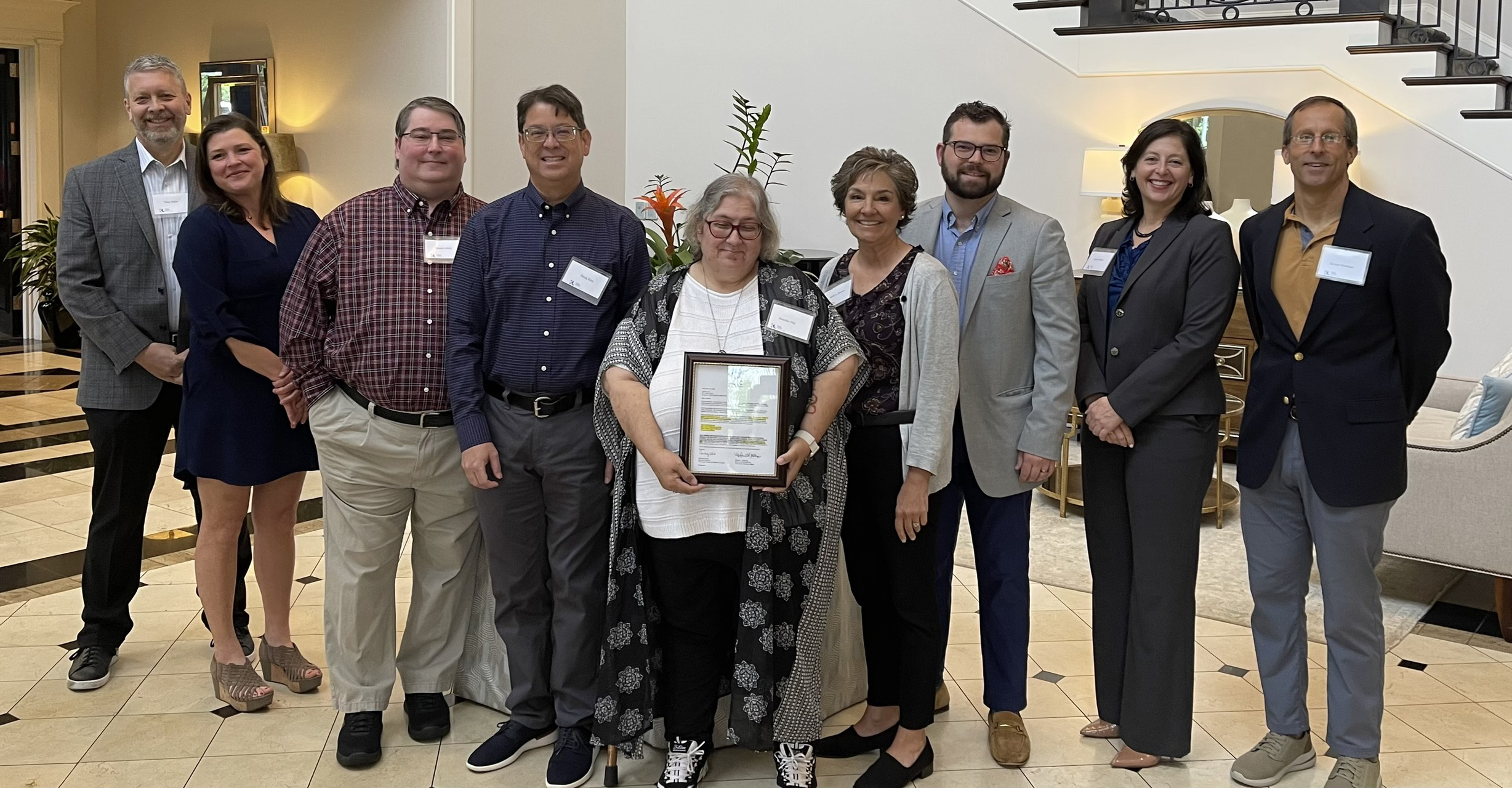
Paralegal Scholarship at Tri-County Technical College awarded
Kim, Lahey & Killough awards Paralegal Scholarship at Tri-County Technical College
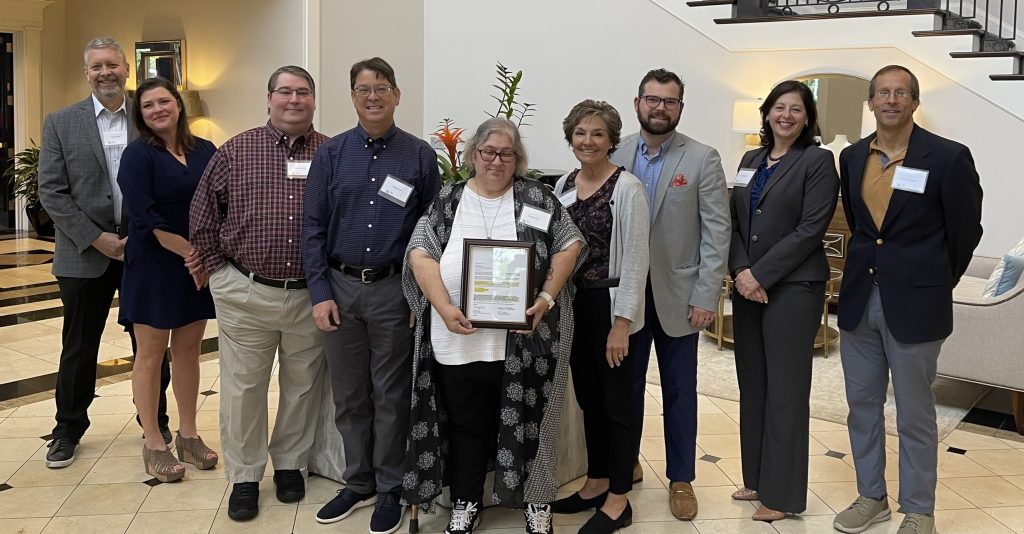
Pictured, left to right: Kim Lahey & Killough attorneys Tony Nolte, Casey Martens, Seann Lahey, Doug Kim, Tri-County Technical College Paralegal Scholarship recipient Jennifer Dill, Heidi Reeves, Manager of Donor Relations, Tri-County Technical College, Jonathan Cauthen, Director of Development, Tri-County Technical College, attorneys Emily Bohan and Hunter Freeman.
Kim, Lahey & Killough Law Firm announced the winner of a $1,500 Paralegal Scholarship with Tri-County Technical College Foundation at a luncheon April 11th at the Thornblade Club in Greer. The Firm congratulates Paralegal Emphasis sophomore Jennifer Dill as this year’s scholarship recipient. This merit scholarship is awarded to a student who demonstrates academic excellence, dedication and passion for the legal profession.
Kim, Lahey & Killough is committed to supporting education in our community and are proud to invest in the next generation of legal professionals. “We recognize the invaluable role of paralegals and this scholarship is one way we show our appreciation and encouragement. As we honor the recipient, we celebrate her dedication to the legal profession, her pursuit of knowledge, and her commitment to making a difference. We hope that this scholarship be a stepping stone for her to provide even greater contributions to the field of law,” commented firm founder Doug Kim.
Tri-County Technical College is a public, two-year community and technical college serving Anderson, Oconee and Pickens counties in South Carolina and is accredited by the Southern Association of Colleges and Schools Commission on Colleges (SACSCOC). The Criminal Justice, Paralegal Emphasis program at TCTC is an associate degree program offered both at the Pendleton Campus and online. The College advances economic development in the tri-county region by preparing a highly skilled workforce.
With offices in Greenville and Charleston, SC and Brevard, NC, the Kim, Lahey & Killough Law Firm is devoted to helping clients establish, enforce, and leverage their intellectual property rights from the Upstate, to the Lowcountry to across the globe. For more information, visit the firm website at kimandlahey.com.
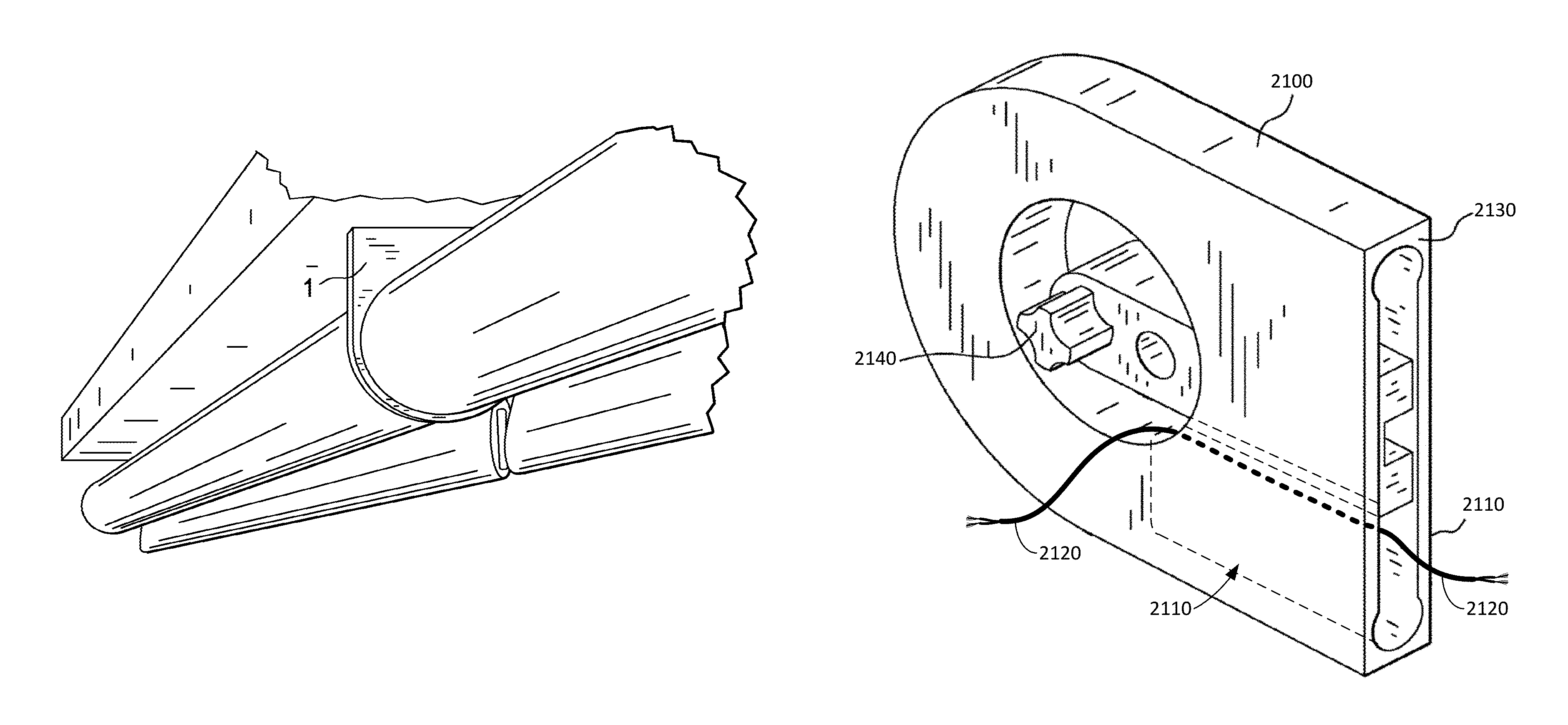
GeigTech East Bay awarded $34.6 million in patent infringement case
South Carolina company GeigTech East Bay, LLC, awarded $34.6 million in damages in patent infringement case against Lutron Electronics
South Carolina company GeigTech East Bay, a maker of modern window shades, has been awarded $34.6 million dollar in damages by a New York Federal jury in a case against Lutron Electronics Co. for infringing upon a window shade patent obtained by Greenville patent attorney Douglas Kim for GeigTech East Bay.
The case involved GeigTech’s U.S. patent No. 10,294,717, for a “shade bracket with concealed wiring,” which was obtained by registered patent attorney Douglas Kim of Kim, Lahey & Killough law firm and granted on 05/21/2019.
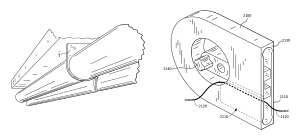 With patent in hand, Geigtech East Bay, LLC filed a federal patent infringement complaint (with trade dress allegations) against Lutron Electronics Co., Inc. alleging that, among other things, patent infringement and trade dress infringement. One of the tactics used by Lutron was to try to invalidate the patent. However, the patent written by Kim withstood two challenges in the United States Patent Trial and Appeal Board as well as in the jury trial which concluded last week. On March 12, 2024, the jury returned a verdict stating that Lutron had infringed on GeigTech’s ‘717 patent on window shade brackets and awarded $34.6 in damages.
With patent in hand, Geigtech East Bay, LLC filed a federal patent infringement complaint (with trade dress allegations) against Lutron Electronics Co., Inc. alleging that, among other things, patent infringement and trade dress infringement. One of the tactics used by Lutron was to try to invalidate the patent. However, the patent written by Kim withstood two challenges in the United States Patent Trial and Appeal Board as well as in the jury trial which concluded last week. On March 12, 2024, the jury returned a verdict stating that Lutron had infringed on GeigTech’s ‘717 patent on window shade brackets and awarded $34.6 in damages.
According to the jury verdict form filed March 15th, when asked “Has GeigTech shown by a preponderance of evidence that any portion of the accused statement is true?” the form is marked “Yes” with a notation that “Lutron opted to poach (GeigTech’s) patented designs and intellectual property to try and remain competitive in a segment of the market that (GeigTech) cornered.”
As the finding of infringement was willful, GeigTech can ask the judge to triple the damages.
“This verdict underscores the importance of protecting intellectual property rights for businesses of all sizes,” commented attorney Kim. “We are thrilled that this patent has withstood numerous challenges, scrutiny and legal maneuvers and that our client has emerged victorious.”
The case was tried by Gary Sorden and his trial team in the firm Cole Schotz P.C.
Lutron was represented by Scott W. Breedlove Carter Arnett PLLC and his defense team.
The patent was originally filed by Richard J. McKenna of Foley & Lardner LLP and taken over by Douglas Kim of the Kim Lahey & Killough Law Firm.
Founded in Charleston, SC in 2011, James Geiger designed a revolutionary shading system: a window shade system with no visible wires or screws. His shading systems company J Geiger is known for its high-tech, minimalist, clean and modern shading systems, His business, J Geiger, provides superior shading systems to both high end home and commercial properties. J Geiger products have been featured in numerous publications including Forbes, dwell, The Architect’s Newspaper, Window Fashion Vision, This Old House, Gray, Aspen Peak, and BD West, where their products won Best in Show in 2019. For more information visit https://jgeigershading.com/ .
 Kim, Lahey & Killough founding attorney Doug Kim began his professional career as a computer programmer and software engineer after his graduation from Davidson College. His intellectual property career began in 1998 when he combined his business experience with his legal education and was involved with enforcing a client’s patent against multiple infringers. Kim has created a well-rounded Intellectual property practice that provides client centric legal solutions and strategies tailored to each client from multinational corporations to start-ups.
Kim, Lahey & Killough founding attorney Doug Kim began his professional career as a computer programmer and software engineer after his graduation from Davidson College. His intellectual property career began in 1998 when he combined his business experience with his legal education and was involved with enforcing a client’s patent against multiple infringers. Kim has created a well-rounded Intellectual property practice that provides client centric legal solutions and strategies tailored to each client from multinational corporations to start-ups.
With offices in Greenville and Charleston, SC and Brevard, NC, the Kim, Lahey & Killough Law Firm is devoted to helping clients achieve their business goals and establish, enforce, and leverage their intellectual property rights from the Upstate, to the Lowcountry to across the globe.
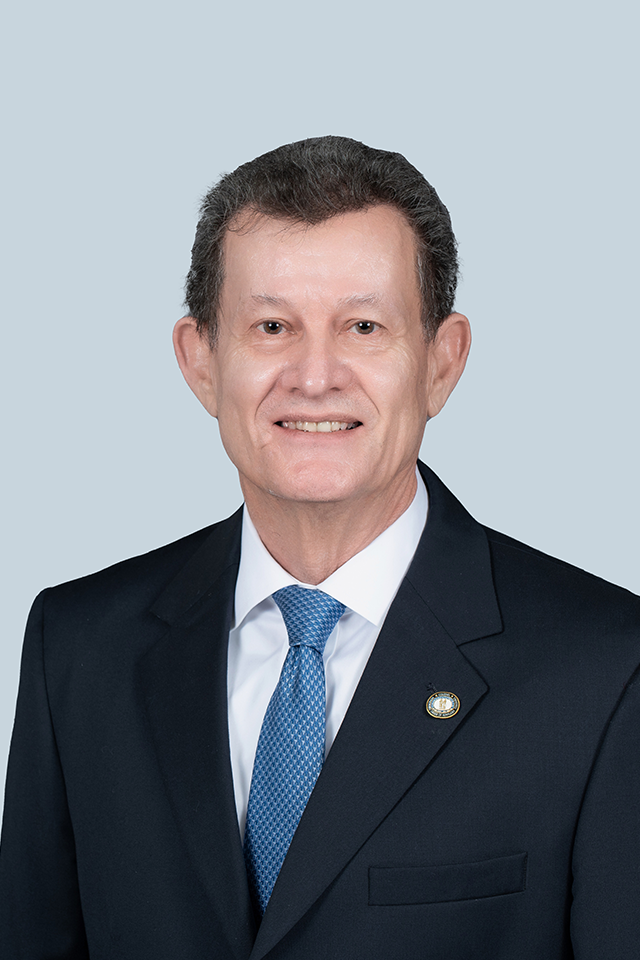
B C Killough named Thomson Reuters Stand-Out Lawyer
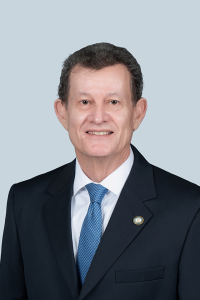 CHARLESTON, SC – Kim Lahey & Killough law firm is pleased to announce that B.C. Killough has been named to the list of “Stand-out Lawyers” by Thomson Reuters. Each year, thousands of senior in-house legal counsels from around the world nominate the top three attorneys they have worked with during the past year.
CHARLESTON, SC – Kim Lahey & Killough law firm is pleased to announce that B.C. Killough has been named to the list of “Stand-out Lawyers” by Thomson Reuters. Each year, thousands of senior in-house legal counsels from around the world nominate the top three attorneys they have worked with during the past year.
Bill Killough has been recognized for decades by his peers in publications such as The Best Lawyers in America, South Carolina Super Lawyers and Charleston Business Magazine’s Legal Elite. Best Lawyers named him the “Corporate Lawyer of the Year” for the Charleston area in 2015. These client-nominated attorneys are “real stand-out lawyers [and] are distinctive because, in combination with their technical competence, they offer business savvy advice, deliver exceptional service, or integrate well with the client team,” according to Thomson Reuters.
Bill Killough practices law in the areas of intellectual property and business law, including commercial transactions. He is a registered patent attorney and has obtained more than 350 patents for clients and filed more than 1500 trademark applications on behalf of clients. He has experience as an intellectual property litigator, with at least one of his cases setting precedent. As a certified mediator, Killough assists parties in intellectual property and corporate disputes in coming to a resolution outside of a courtroom.
With offices in Greenville and Charleston, SC and Brevard, NC, the Kim, Lahey & Killough Law Firm is devoted to helping clients achieve their business goals and establish, enforce, and leverage their intellectual property rights from the Upstate, to the Lowcountry to across the globe.

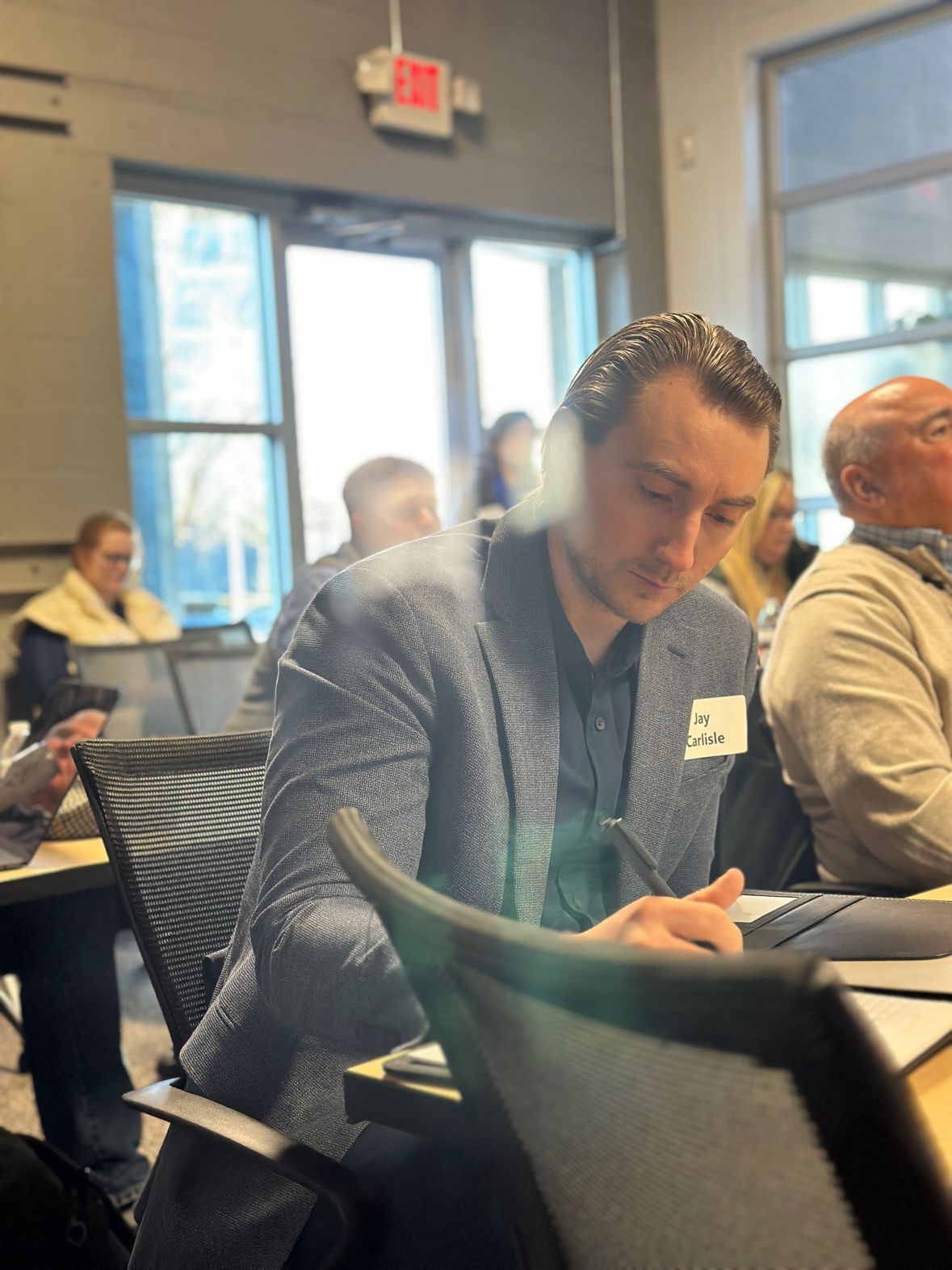
Contingency Planning and Disruptions: Preparing for a Typhoon
At the recent NEXT Upstate’s Founders Forum, our firm’s founder Attorney Doug Kim spoke to business owners about contingency planning and the crucial steps they should take to prepare for disruptions. He speaks from personal experience. In May 2023, during a diving expedition to Truk Lagoon Micronesia, unexpected challenges unfolded, leading to an extended stay due to flight delays caused by Typhoon Mawar.
Before the one-in-a-lifetime journey began, Doug and the rest of the firm prepared meticulously, including informing clients, designating a point of contact, and addressing administrative tasks. Despite facing unexpected delays and limited communication options during the trip that Mother Nature extended by two weeks, the firm’s established policies and procedures allowed for effective management of the disruption. We didn’t miss a beat!
The resilience of our firm’s operations, enabled by our SaaS tech stack, cloud storage, and VPN, allowed for continuous communication and work progress. The ability to triage and prioritize tasks ensured that essential work continued, even in the face of uncertainties. The experience highlighted the importance of having contingency plans in place, especially when unforeseen circumstances lead to an unexpectedly prolonged absence.
While the incident tested the firm’s resilience, it also provided valuable insights into the effectiveness of remote work capabilities. It underscores the need for businesses to not only anticipate disruptions but also to implement robust contingency plans that encompass various scenarios, ensuring continued functionality and adaptability in the face of the unexpected.
Key Takeaways:
Complete a Comprehensive Business Analysis Impact Report:
Doug emphasized the importance of conducting a thorough business analysis impact report. Scrutinize all business functions, applications, and services to identify vulnerabilities and potential areas of risk. By understanding how disruptions might impact different facets of the business, owners can proactively implement measures to mitigate risks.
Protect the Essentials for Revenue Generation:
Protecting what’s vital to revenue is paramount. Doug advised business owners to identify and secure the critical components that drive revenue. This includes safeguarding key assets, client relationships, and proprietary technologies. By prioritizing these elements, businesses can enhance their resilience against disruptions that may threaten their financial stability.
Cross-Train Teams and Establish Succession Plans:
Cross-training teams is a strategic move to ensure that no single person holds exclusive knowledge or skills critical to business operations. For solopreneurs, Doug recommended finding a trusted friend who can serve as a backup and hold a spare set of keys to the castle. This not only mitigates risks associated with personnel dependencies but also ensures a smoother transition in case of unforeseen circumstances.
Develop a Comprehensive Communications Plan:
Effective communication is key during times of disruption. Doug suggested creating both internal and external communications plans. Internally, it’s crucial to designate a person in charge and establish clear communication channels. Externally, keeping clients and vendors informed is essential for maintaining trust. Additionally, evaluating the need for public relations (PR) during crises ensures that the business’s image is carefully managed.
Data Recovery Strategies:
Doug outlined a robust data recovery strategy involving the maintenance of three copies, two backups, and one offsite storage. This ensures data redundancy and protection against data loss. Incorporating third-party solutions that are geographically untethered adds an extra layer of security.
Measures to Safeguard Property and Funds:
To protect property and funds, Doug recommended internal agreements such as employment and independent contractor agreements. Safeguarding intellectual capital (IP), having duplicate vendors, and establishing an incident response team, both internally and externally, further fortify the business against unforeseen events.
Insurance and Contract Clauses:
The importance of insurance in contingency planning cannot be overstated. Doug suggested considering insurance coverage tailored to the specific risks faced by the business. Additionally, including contract clauses that outline provisions for emergency use of electronic data processing equipment helps manage expectations in case of equipment failures.
By incorporating contingency planning strategies, entrepreneurs can build resilient businesses capable of withstanding disruptions and adapting to changing circumstances. As Judson L Moore aptly stated, “A bad plan is better than no plan,” emphasizing the significance of flexibility in adapting and refining strategies as circumstances evolve.
- Check out local news coverage of “Stuck in Truk”
- Learn more about NEXT Upstate’s Founders Forum series.
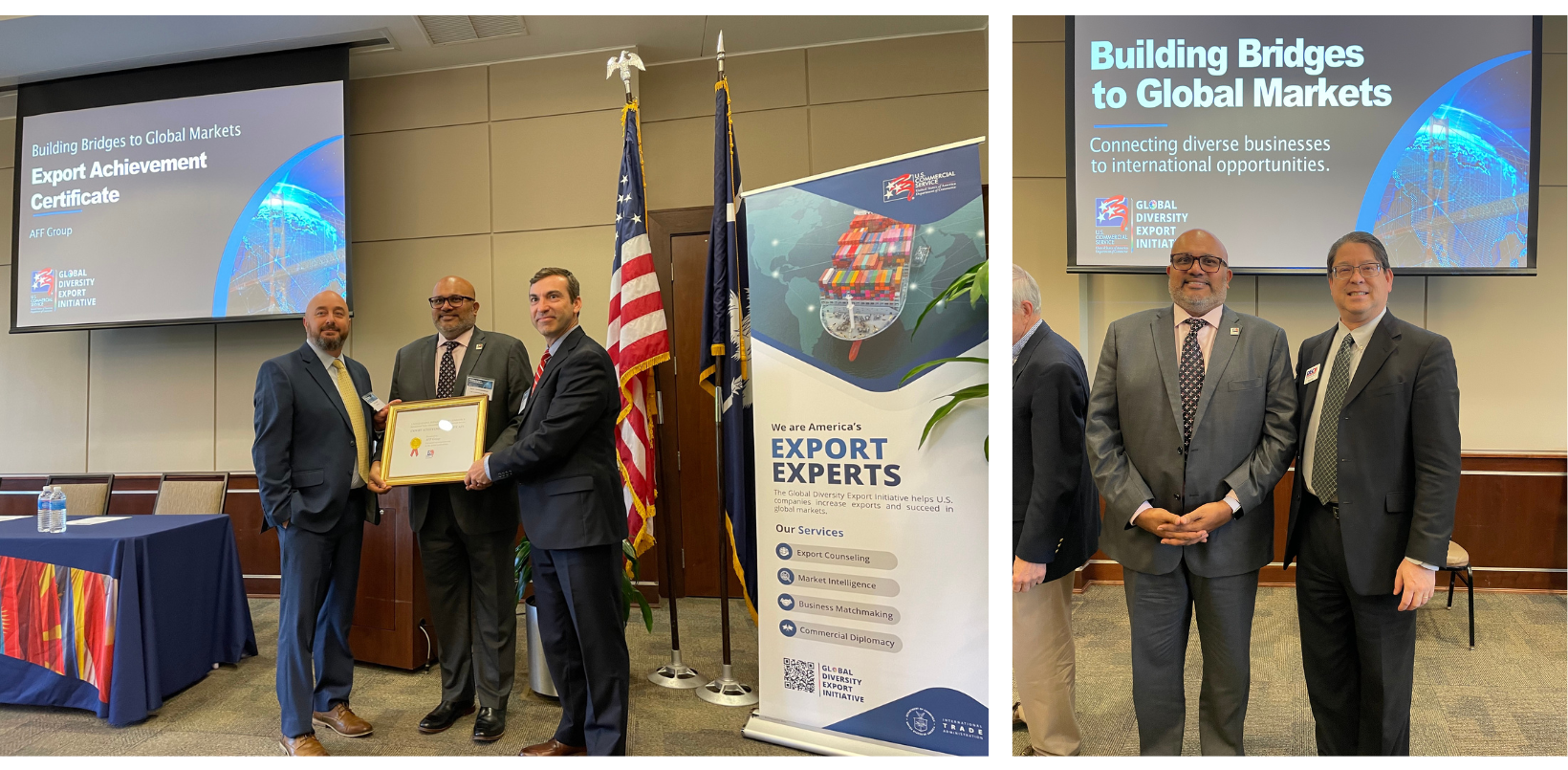
AFF Group Honored with Export Achievement Award
 The Kim, Lahey & Killough Law Firm congratulates the AFF Group, formerly known as the American Foam & Fabric Company, for being honored with the Export Achievement Award from the U.S. Department of Commerce. This prestigious award recognizes the outstanding achievements of U.S. companies in the international market and their contributions to expanding U.S. exports.
The Kim, Lahey & Killough Law Firm congratulates the AFF Group, formerly known as the American Foam & Fabric Company, for being honored with the Export Achievement Award from the U.S. Department of Commerce. This prestigious award recognizes the outstanding achievements of U.S. companies in the international market and their contributions to expanding U.S. exports.
The announcement was made in April during the International Trade Administration U.S. Commercial Service’s Building Bridges to Global Markets event in Greer, SC. This regional event included included the South Carolina District Export Council and special guest Arun Venkataraman, who is the Assistant Secretary of Commerce for Global Markets, and Director General of the U.S. and Foreign Commercial Service.
Kim Lahey & Killough’s founding attorney Doug Kim serves on the SC District Export Council. He remarked, “It’s a pleasure to see clients recognized for their success. This well-deserved recognition is a testament to AFF’s efforts to expand their market and business reach internationally.”
The AFF Group has been a leading provider of high-quality foam and fabric products for over 60 years. The company operates several manufacturing facilities in the United States, including its headquarters in Lyman. Over the years, the company has developed a reputation for excellence in product quality and customer service.
In recent years, AFF Group has expanded its business into international markets, exporting its products to countries all over the world. The company’s success in the international market is a testament to its commitment to innovation, quality, and customer satisfaction.
AFF Group CEO Ben Leinster commented, “We are incredibly honored to be recognized by the U.S. Department of Commerce for the Export Achievement Award. Whether deciding which foreign markets to pursue or coordinating logistics of a trip, we are grateful for the assistance of the partnership with the U.S. Department of Commerce and the SC District Export Council.”
In addition to AFF, Greenville-based IT company Blue Eye Soft was also recognized with an Export Achievement Award. The U.S. Department of Commerce’s International Trade Administration (ITA) presents the Export Achievement Award to companies that have demonstrated a commitment to exporting and increasing their international sales. The award recognizes companies that have shown exceptional progress in expanding their exports or penetrating new markets.
The ITA plays an important role in promoting U.S. exports and supporting U.S. companies in the international market. The agency works with U.S. businesses to identify new export opportunities, provide market intelligence, and develop export strategies. The ITA also provides technical assistance and funding to help companies expand their international sales.

Kim, Lahey & Killough 2023 SC Super Lawyers
 Kim, Lahey & Killough attorneys listed in
Kim, Lahey & Killough attorneys listed in
2023 South Carolina Super Lawyers
Kim, Lahey & Killough attorneys Doug Kim, Seann Lahey, and B.C. Killough have been named in the 2023 South Carolina Super Lawyers list as top-rated intellectual property attorneys and Casey Martens has been named in the 2023 South Carolina Rising Stars list as a top-rated employment and labor attorney in the Greenville and Charleston markets.
Each year, no more than five percent of the lawyers in the state are selected by the research team at Super Lawyers to receive the honor of inclusion on the Super Lawyers list and no more than 2.5 percent of the lawyers in the state are selected to be listed as Rising Stars.
Greenville patent attorney Doug Kim, founder of Kim, Lahey & Killough, has been included in the South Carolina Super Lawyers list annually since 2017. Kim concentrates his law practice in the areas of brand protection, invention protection, licensing, contracts, company formation, Internet and domain name, data security and privacy, patents, trademarks, copyright, technology transfer, IP litigation, trade secrets, Internet & domain name pursuits, business disputes & resolutions. In addition to Super Lawyers, Doug Kim has previously been named the to the Greenville, SC Best Lawyers® list, named the Trademark Lawyer of The Year, the Best Lawyers® Patent Lawyer of The Year, an IP Star by Managing Intellectual Property magazine and a Legal Elite of the Upstate by Greenville Business Magazine.
 Charleston patent attorney B.C. Killough adds his ninth year as a named attorney to the South Carolina Super Lawyers list in the area of intellectual property law. Killough’s practice areas include brand protection, invention protection, licensing, contracts, company formation, Internet and domain name, data security and privacy, patents, trademarks, copyright, technology transfer, IP litigation, trade secrets, Internet & domain name pursuits, business disputes & resolutions, commercial transactions, and mediations of intellectual property and commercial disputes. Killough has been honored as a Senior Fellow by the Litigation Counsel of America, holds an AV preeminent rating with Martindale-Hubbell, was previously named the Best Lawyers Corporate Lawyer of the Year for the Charleston market and has been recognized by Charleston Business Magazine as a Legal Elite in the area of Intellectual Property and Innovation.
Charleston patent attorney B.C. Killough adds his ninth year as a named attorney to the South Carolina Super Lawyers list in the area of intellectual property law. Killough’s practice areas include brand protection, invention protection, licensing, contracts, company formation, Internet and domain name, data security and privacy, patents, trademarks, copyright, technology transfer, IP litigation, trade secrets, Internet & domain name pursuits, business disputes & resolutions, commercial transactions, and mediations of intellectual property and commercial disputes. Killough has been honored as a Senior Fellow by the Litigation Counsel of America, holds an AV preeminent rating with Martindale-Hubbell, was previously named the Best Lawyers Corporate Lawyer of the Year for the Charleston market and has been recognized by Charleston Business Magazine as a Legal Elite in the area of Intellectual Property and Innovation.
 Greenville patent attorney Seann Lahey joins colleagues Doug Kim and B.C. Killough on the Super Lawyers list for their work in intellectual property matters. Seann Lahey’s intellectual property law practice regularly includes work in trademarks, copyrights, trade secrets licensing matters, and he has extensive experience dealing with international and U.S. patent prosecution. He has also been recognized by Greenville Business Magazine as a Legal Elite of the Upstate for his work in intellectual property law.
Greenville patent attorney Seann Lahey joins colleagues Doug Kim and B.C. Killough on the Super Lawyers list for their work in intellectual property matters. Seann Lahey’s intellectual property law practice regularly includes work in trademarks, copyrights, trade secrets licensing matters, and he has extensive experience dealing with international and U.S. patent prosecution. He has also been recognized by Greenville Business Magazine as a Legal Elite of the Upstate for his work in intellectual property law.
 Super Lawyers South Carolina Rising Star Casey Martens practices employment and business law in both the Greenville SC and Brevard NC offices of Kim, Lahey & Killough. Her law practice focuses in the areas of business disputes and litigation, state and federal employment law, corporate formation, drafting and enforcement of contracts, business disputes involving interference with client relations, individual and business defamation, collections, and enforcement of non-compete agreements. She has also been previously recognized by Greenville Business Magazine as a Legal Elite of the Upstate.
Super Lawyers South Carolina Rising Star Casey Martens practices employment and business law in both the Greenville SC and Brevard NC offices of Kim, Lahey & Killough. Her law practice focuses in the areas of business disputes and litigation, state and federal employment law, corporate formation, drafting and enforcement of contracts, business disputes involving interference with client relations, individual and business defamation, collections, and enforcement of non-compete agreements. She has also been previously recognized by Greenville Business Magazine as a Legal Elite of the Upstate.
About Super Lawyers
Super Lawyers, part of Thomson Reuters, is a rating service of outstanding lawyers from more than 70 practice areas who have attained a high degree of peer recognition and professional achievement. The annual selections are made using a patented multiphase process that includes a statewide survey of lawyers, an independent research evaluation of candidates and peer reviews by practice area.
About Kim, Lahey & Killough
With offices in Greenville and Charleston, SC and Brevard, NC, the Kim, Lahey & Killough Law Firm is devoted to helping clients establish, enforce, and leverage their intellectual property rights from the Upstate, to the Lowcountry to across the globe.

Watch Kanga Compete on Shark Tank
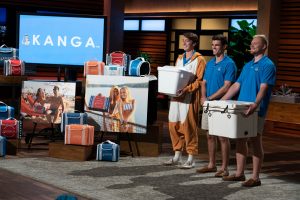
Teddy Giard, Logan LeMance and Austin Maxwell set to pitch their product, the Kase Mate, on the Sunday, April 7, episode of “Shark Tank.”
Like many young people, Logan LaMance had a decision to make his freshman year in college. He could continue focusing on freedom and fun or get serious and shoot for the stars. He chose the latter and it paid off. This Sunday, Logan and his partners at Kanga, LLC, will appear on Shark Tank. Their pitch? Kanga’s Kase Mate is described as a “koozie for a case of beer.” Their marketing slogan is, “Kooler than a cooler and keeps drinks cold for up to 7 hours without ice.” You get the point, but how did they get to this point?
Logan was born and raised in Pickens, SC. He started taking classes at Clemson during fall 2014. Logan says it was the end of that first semester when he realized he needed a change in direction. The following semester he was part of an internship program lead by Young Entrepreneurs Across America, that teaches students how to start and run a business. It was a house painting business called Student Painters, LLC.
Logan worked harder over the next two years than he ever had before in his life. He put in between 30 – 40 hours per week on school work and every other waking moment was spent on his business. Logan said it was a tough place to be, both mentally and physically taxing, but he was driven and had a dream. He says, “The thing I am the proudest of is not that I brought the biggest business or made the most money, but that I fought through it, never quit and learned a lot of valuable lessons along the way.”
That’s when he caught the bug. After running a grueling, yet successful painting business with other students for two years, he was sick and tired of paint brushes, but he knew he wanted to be an entrepreneur. During the spring of 2017, Logan took an entrepreneur class that would change his life. The class project was to create a solution for a problem that people face. Logan says finding a good idea wasn’t easy.
Then came football season. Logan and his friends were on their way to tailgate. They stopped to grab a couple 12-packs on the way. They all had coolers back at their apartments, but they didn’t want the hassle of carrying a heavy, clunky cooler a mile from home to the tailgate and back, which meant they ended up drinking warm beer before long. Logan thought to himself, “Why are we drinking warm beer? That’s a problem.” He had to find the solution next.
Logan says he saw someone take a cold beer out of a cooler and put it into a koozie and that’s when it hit him. Logan wondered, “Why don’t we have the same thing for the whole case? We got it from the fridge (what made it cold), why don’t we have something to put it in to keep it cold for the whole time we’re actually going to enjoy it?”
That’s how Kanga was born. He pitched the idea to his class and convinced them it was bigger than a class project. They created a prototype and worked with mentors through the Spiro Institute to take their idea and turn it into a business.
Doug Kim, Kanga’s intellectual property attorney of the Kim and Lahey Law Firm, says, “I met the owners of Kanga, LLC through my work with the Clemson Venture Program and was immediately impressed with their inventions, marketing acumen and business decisions. To see these business owners accomplish so much while also attending college, should be inspiring for everyone.”
Kanga started with a short run of 100 units to test the market and see if people would actually buy it, and they did. From there, Kanga won a first-place prize of $8,000 at Clemson’s “The Pitch Smackdown,” which Logan describes as a mini shark tank where they also picked up their first investor.
Fast forward to when Kanga had a successful Kickstarter campaign in 2018, and now, as they’re only two days away from appearing on the real Shark Tank on ABC. Logan says, “If we can do it with a koozie for a case of beer, image what other ideas can do.”
The Shark Tank episode airs at 10pm EST, Sunday, April 7.
This article is for informational purposes only. Any result achieved for one client does not necessarily indicate that similar results can be achieved for any other client. Kim and Lahey Law Firm, LLC has designated Douglas W. Kim as the person to contact for information regarding this article. He may be contacted at 864-973-6688 or at [email protected].
Doug Kim Selected to 2019 SC Super Lawyers List

Douglas Kim, Partner, Kim and Lahey Law Firm, LLC
Douglas Kim, a longtime intellectual property attorney in the Upstate area, has been selected to the 2019 South Carolina Super Lawyers list. Each year, no more than five percent of the lawyers in the state are selected by the research team at Super Lawyers to receive this honor.
Super Lawyers, a Thomson Reuters business, is a rating service of outstanding lawyers from more than 70 practice areas who have attained a high degree of peer recognition and professional achievement. The annual selections are made using a patented multiphase process that includes a statewide survey of lawyers, an independent research evaluation of candidates and peer reviews by practice area. The result is a credible, comprehensive and diverse listing of exceptional attorneys.
Based in Greenville, South Carolina, Doug started his own law firm in March of 2018. Soon after, he partnered with longtime friend and colleague, Seann Lahey, in what is now the Kim and Lahey Law Firm, LLC. They assist clients, both domestically and internationally, who are looking to safeguard innovative ideas or inventions, secure their brand’s identity, or otherwise need to protect their business interests. They take a client-centric approach toward understanding a client’s needs in order to create customized legal solutions involving patents, trademarks, copyrights, trade secrets, enforcement, licensing, contracts, privacy policies, and website terms and conditions.
Doug also serves as the Chair of the South Carolina Bar Intellectual Property and Innovation Committee.

The Super Lawyers lists are published nationwide in Super Lawyers Magazines and in leading city and regional magazines and newspapers across the country. Super Lawyers Magazines also feature editorial profiles of attorneys who embody excellence in the practice of law. For more information about Super Lawyers, visit SuperLawyers.com.


